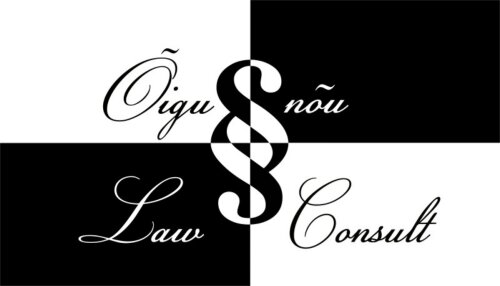Best Collaborative Law Lawyers in Estonia
Share your needs with us, get contacted by law firms.
Free. Takes 2 min.
Free Guide to Hiring a Family Lawyer
Or refine your search by selecting a city:
List of the best lawyers in Estonia
About Collaborative Law in Estonia
Collaborative Law, or 'collaborative practice', is a legal process designed to help parties come to a resolution through cooperation rather than conflict. In Estonia, this approach is gaining traction as a preferable alternative to traditional litigation, particularly in family law cases such as divorces and custody disputes. The process involves both parties working with trained collaborative lawyers to reach a mutually agreeable settlement without going to court. The emphasis is on negotiation, mediation, and arbitration to resolve disputes peacefully and efficiently.
Why You May Need a Lawyer
Individuals may seek a lawyer skilled in Collaborative Law in Estonia for a variety of reasons. Common situations include:
- Divorce or separation where both parties wish to maintain a respectful relationship post-divorce.
- Child custody arrangements that prioritize the welfare of the children without exposing them to adversarial court battles.
- Property and financial disputes requiring a fair division of assets.
- Business partnerships dissolving needing an amiable separation strategy.
- Any situation where maintaining privacy and control over the outcome is beneficial.
Local Laws Overview
Estonia's legal system supports the use of collaborative law in civil matters. Estonian law encourages dispute resolution methods that promote cooperation and amicable settlements. The principles guiding collaborative law practices here include confidentiality, transparency, and voluntary adherence to the process by all parties involved. Collaborative law agreements are not legally binding in the same sense as court orders but can be formalized through a contractual agreement acknowledged by both parties.
Frequently Asked Questions
What is the main benefit of Collaborative Law in Estonia?
The main benefit of Collaborative Law is that it allows parties to resolve disputes respectfully and privately without the need for court intervention, preserving personal relationships and reducing stress.
Who can participate in a Collaborative Law process?
All parties involved in a legal dispute, who agree to work collaboratively with their legal representatives, can participate in the process.
Are documents from the Collaborative Law process confidential?
Yes, all discussions and documents exchanged during the collaborative process are confidential and cannot be used in court, should the collaborative process fail.
What happens if a settlement cannot be reached?
If the parties can't reach a settlement, they may need to proceed to traditional litigation. However, the collaborative lawyers usually agree not to represent the clients in court, meaning new lawyers must be appointed.
Is Collaborative Law suitable for complex legal issues?
Yes, collaborative law can effectively deal with complex issues, provided all parties are committed to resolving the matter cooperatively.
How long does the Collaborative Law process typically take?
The duration varies depending on the complexity of the issues and the willingness of the parties to cooperate. It generally takes less time than courtroom litigation.
Can Collaborative Law be used for commercial disputes?
Absolutely. While often associated with family law, collaborative practices can also apply to commercial disputes, especially where preserving business relationships is important.
Do I have to hire a lawyer to participate in Collaborative Law?
Yes, each party typically hires their own collaboratively trained lawyer to ensure that their interests are protected throughout the process.
What is the cost implication of Collaborative Law?
While costs can vary, collaborative law tends to be more cost-effective compared to litigation due to shorter timelines and reduced legal fees.
Can a Collaborative Law agreement be enforced by a court?
While not automatically enforceable, outcomes can be converted into binding agreements or court orders if necessary.
Additional Resources
For those seeking further information or assistance in Estonia, consider reaching out to:
- The Estonian Bar Association for a list of qualified collaborative lawyers.
- The Ministry of Justice for guidance on dispute resolution methods.
- Local mediation centers that often offer advice and support for collaborative processes.
Next Steps
If you are considering entering into a collaborative process, start by consulting with a lawyer who specializes in collaborative law. Gather all relevant information pertaining to your situation and prepare an open mind towards achieving a mutually acceptable solution. Remember, the key to success in collaborative law is the willing and honest participation of all parties involved. Consider scheduling an initial meeting with a collaborative lawyer to understand the process and explore if it aligns with your needs and expectations.
Lawzana helps you find the best lawyers and law firms in Estonia through a curated and pre-screened list of qualified legal professionals. Our platform offers rankings and detailed profiles of attorneys and law firms, allowing you to compare based on practice areas, including Collaborative Law, experience, and client feedback.
Each profile includes a description of the firm's areas of practice, client reviews, team members and partners, year of establishment, spoken languages, office locations, contact information, social media presence, and any published articles or resources. Most firms on our platform speak English and are experienced in both local and international legal matters.
Get a quote from top-rated law firms in Estonia — quickly, securely, and without unnecessary hassle.
Disclaimer:
The information provided on this page is for general informational purposes only and does not constitute legal advice. While we strive to ensure the accuracy and relevance of the content, legal information may change over time, and interpretations of the law can vary. You should always consult with a qualified legal professional for advice specific to your situation.
We disclaim all liability for actions taken or not taken based on the content of this page. If you believe any information is incorrect or outdated, please contact us, and we will review and update it where appropriate.
Browse collaborative law law firms by city in Estonia
Refine your search by selecting a city.













